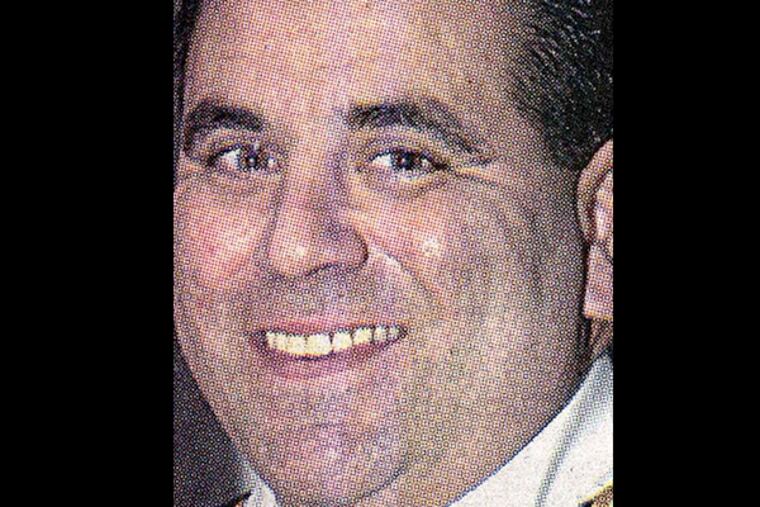Judge reduces ex-chief's sentence in murder plot
A Superior Court judge in Burlington County has reduced by nearly a third the 17-year sentence being served by a former Bordentown police officer who conspired a decade ago to kill his estranged wife.

A Superior Court judge in Burlington County has reduced by nearly a third the 17-year sentence being served by a former Bordentown police officer who conspired a decade ago to kill his estranged wife.
Judge Jeanne Covert resentenced Philip Castagna on Friday to 12 years in state prison after an appeals panel decided last year that she improperly considered his status as police chief when sentencing him in 2011. A judge may give a public official a harsher sentence because of a breach of public trust, but Castagna was suspended from his job at the time of the crime.
Castagna, 52, will be ineligible for parole until he has served 85 percent of his sentence, in about 2021 based on information on the state Department of Corrections website. New Jersey's youngest police chief when he was appointed at age 28, Castagna was found guilty of asking a friend to murder his estranged wife, Joyce Leopold, after she obtained a restraining order against him and caused him to lose his police job in 2003. He underwent two high-profile trials after the first ended in a mistrial.
"Evidence was withheld," Castagna told Covert Friday at the beginning of the emotional hearing in the Mount Holly courthouse. Castagna then said that he wanted to fire Bruce Cassidy, his fourth lawyer, and have a new trial. Covert stopped him, saying the only purpose of the hearing was resentencing. Last year the appeals panel rejected Castagna's request for a new trial on various grounds, and the state Supreme Court later denied certification.
Shaking his head, Castagna interrupted Covert, asking "May I speak now? . . . I didn't get a fair appeal before the appellate court." He said that he did not want to proceed with the resentencing because his "rights were violated."
When Assistant Burlington County Prosecutor Michael Luciano tried to persuade Covert to hand out the same sentence, based on the severity of the crime rather than its being a breach of public trust, Castagna rolled his eyes and smiled faintly. He glanced at Leopold, who sat in the first row of the courtroom, and grimaced.
Leopold declined to comment afterward.
Castagna then changed his mind and agreed to allow Cassidy to argue for a more lenient term. The Princeton-based lawyer argued that the couple's "toxic relationship" led to the crime and that the psychological harm Leopold said she suffered after the crime could not be weighed by the judge because Leopold had been unaware of the conspiracy.
During the trial, Gary Hall, a convicted felon and a friend of Castagna's, testified that Castagna asked him to shoot Leopold when she returned from her job as a nurse. Instead, Hall alerted authorities and agreed to record his conversations with Castagna.
Cassidy also argued that Castagna had been a "model prisoner" since his incarceration began in 2011, and had been kept mostly in solitary confinement for his own protection because he was a police officer.
Castagna faced a 10- to 20-year prison term, and Covert said he deserved 12 years partly because his conspiracy was "not an isolated incident" and was part of "escalating conduct" against his wife. He previously was found guilty of violating a permanent restraining order that Leopold obtained against him. But Covert said she would trim his sentence because he was no longer the chief at the time of the conspiracy, had caused no problems in prison, and had no previous record.